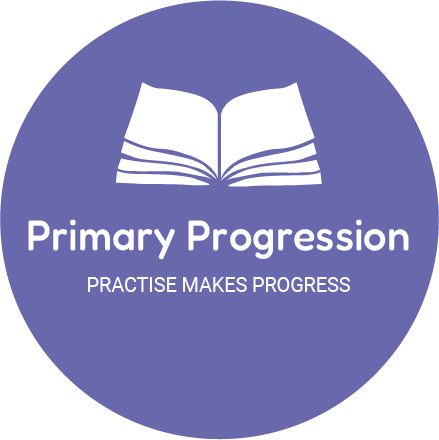KS1Key Stage One



EducationWhat Should KS1 Children Be Taught?
KS1 follows after EYFS and becomes more focused around subject-specific lessons, rather than learning through play. The Department for Education (DfE) produce a curriculum of subjects that are compulsory to cover in KS1. The DfE states:
“The national curriculum provides pupils with an introduction to the essential knowledge that they need to be educated citizens. It introduces pupils to the best that has been thought and said; and helps engender an appreciation of human creativity and achievement…The national curriculum provides an outline of core knowledge around which teachers can develop exciting and stimulating lessons to promote the development of pupils’ knowledge, understanding and skills as part of the wider school curriculum.”
For KS1, the DfE state that the following national curriculum subjects are compulsory: English, Maths, Science, Computing, PE, History, Geography, Languages, Art, Design and Technology and Music.
The KS1 Curriculum: Core SubjectsKS1 English/ Literacy
English/Literacy is a core subject in the national curriculum. The DfE states: “A high-quality education in English will teach pupils to speak and write fluently so that they can communicate their ideas and emotions to others and through their reading and listening, others can communicate with them. Through reading in particular, pupils have a chance to develop culturally, emotionally, intellectually, socially and spiritually.”
The DfE aims of teaching English are:
- Pupils will be able to read fluently and have a good understanding of what they have read.
- Pupils will develop a love of reading, read more often and read a wider range of texts.
- Pupils will gain a wider vocabulary, gain knowledge of grammar and have a clear understanding of reading, writing and spoken language.
- Pupils will be able to appreciate our literary heritage.
- Pupils will be able to write clearly, accurately and coherently. They will be able to adapt their style of writing and use of language depending on the purpose, context and audience of the text.
- Pupils will ask questions and join conversations to improve learning and understanding. They will be able to explain their ideas clearly.
- Pupils will be able to make presentations and demonstrations, including participating in debates.



The KS1 Curriculum: Core SubjectsKS1 Maths
Maths is a core subject in the national curriculum. The DfE states: ” A high-quality mathematics education provides a foundation for understanding the world, the ability to reason mathematically, an appreciation of the beauty and power of mathematics, and a sense of enjoyment and curiosity about the subject.”
The DfE aims of teaching Maths are:
- Pupils will become familiar with the fundamentals of mathematics and perform them fluently. Pupils will be exposed to increasingly complex problems over time and will develop conceptual understanding. They will be able to recall knowledge accurately and apply it.
- Pupils will be able to provide reasons for their calculations and lines of enquiry using proof and mathematical language.
- Pupils will be able to apply their knowledge to solve problems. They will learn to do this by breaking down the problems into easier steps to complete.

The KS1 Curriculum: Core SubjectsKS1 Science
Science is a core subject in the national curriculum. The DfE states: “A high-quality Science education provides the foundations for understanding the world through the specific disciplines of biology, chemistry and physics. Science has changed our lives and is vital to the world’s future prosperity, and all pupils should be taught essential aspects of the knowledge, methods, processes and uses of Science.”
The DfE aims of teaching Science are:
- Pupils will develop their scientific knowledge and understanding of biology, chemistry and physics.
- Pupils will develop their understanding of nature, different processes and methods. They will do this through questioning and enquiries, which will aid them in answering scientific questions.
- Pupils will have the scientific knowledge needed to understand Science today and in the future.


The KS1 CurriculumKS1 Assessments
Each key stage has a set of assessments in primary school. In KS1, children will complete their Phonics Screening Check. Additionally, (although it is no longer mandatory) some schools may have children complete assessments knowns as SATs (Standard Assessment Tests) at the end of Year 2. SATs in KS1 consist of Math and English test papers where the children will be tested on the KS1 curriculum. Children are to be at the expected standard/at age related expectations for their age by the end of KS1.
KS1 Assessment: Year 1 Phonics Screening Check
The Year 1 Phonics Screening Check is an assessment for all Year 1 students. The assessment consists of 20 real words and 20 pseudo words (alien/nonsense words) that the children will be asked to read/decode. This assessment will provide an overview of each pupil’s phonics progression and students can be reassessed.
KS1 SATs: English
The English SATs are split into two separate papers: the reading paper and the spelling, punctuation and grammar paper.
The reading paper tests KS1 children on their comprehension skills. The paper will include a booklet containing extracts from fiction, non-fiction or poetry texts. Children will be provided with comprehension questions to answer once they have read the texts. The spelling, punctuation and grammar paper tests KS1 children on their understanding of grammatical features. This test usually includes questions where the children will: identify the correct spelling, underline the correct word to complete a sentence, filling in missing word sentences and identify the grammatical feature that is being used.
KS1 SATs: Maths
The Maths SATs are split into two separate papers: the arithmetic paper and the reasoning paper.
The arithmetic paper tests KS1 children on their ability to solve mental maths problems and solve calculations. The reasoning paper tests KS1 children on their ability to apply their mathematical knowledge and understanding to real-life scenarios. Reasoning test questions are word problems that may have more than one step to solve them.


